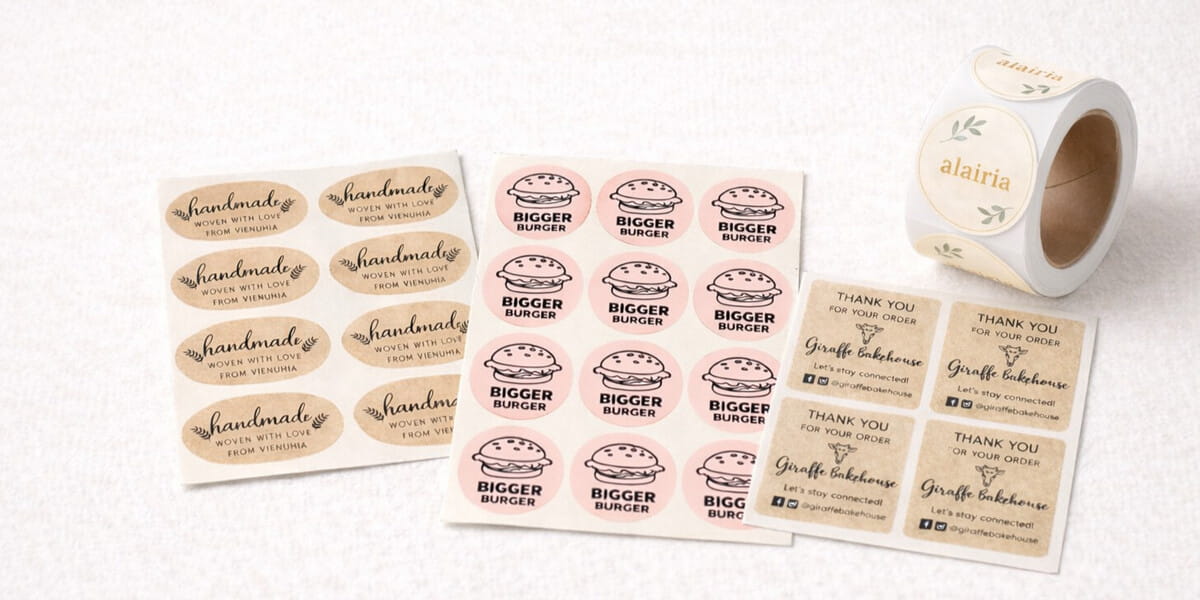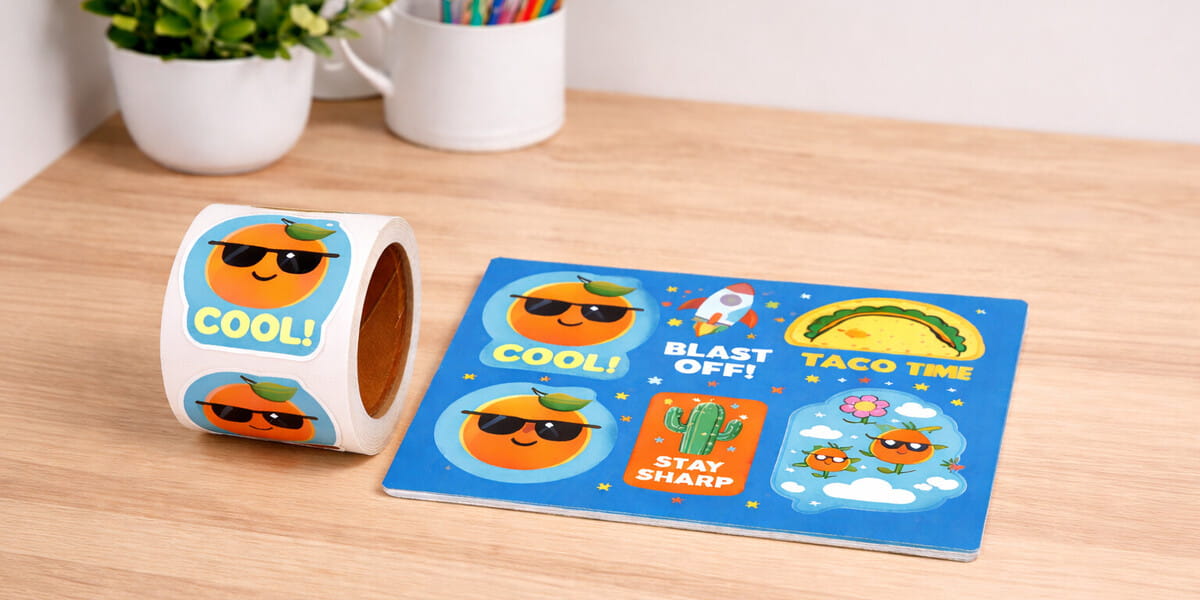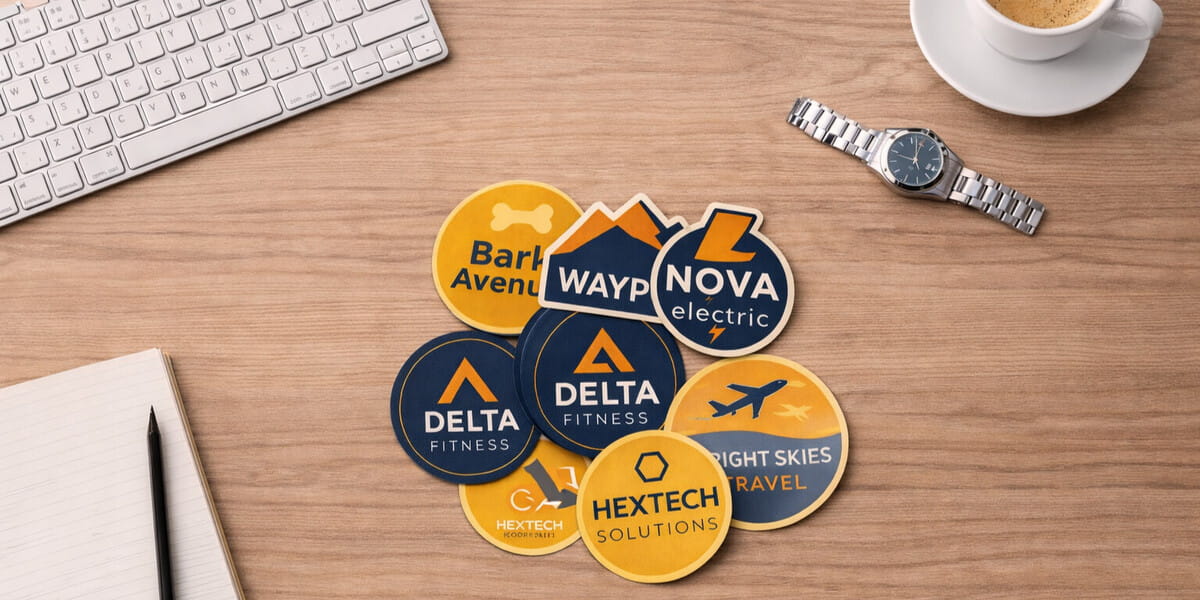
Blog
Recommended Industrial Label Printer for 6 Specific Industries
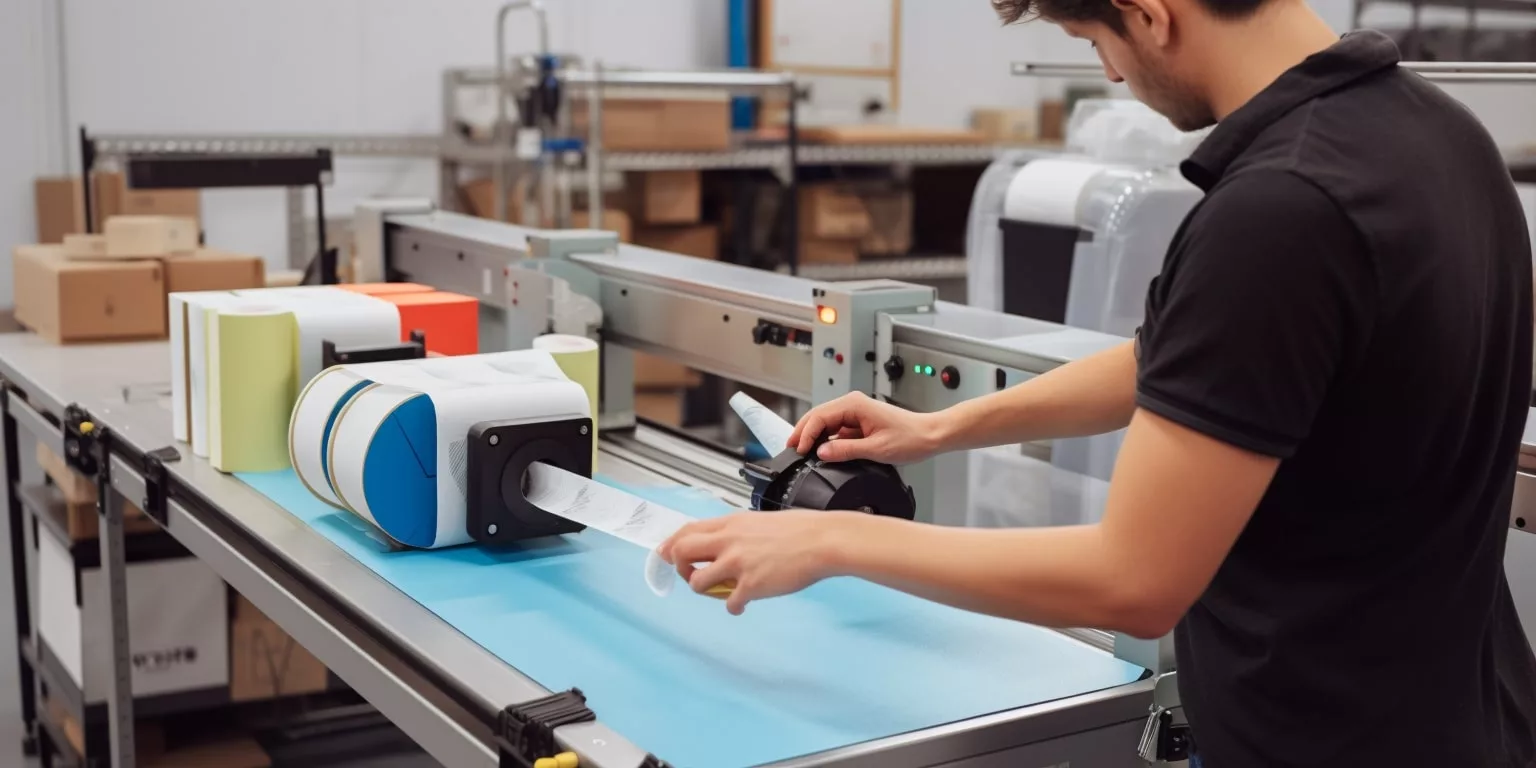
Following our discussion of the commercial label printer, we will now turn our attention to the mass production of labels for a wide range of industries, including 6 sectors: healthcare, manufacturing, logistics, retail, food and beverage, and chemical industry. There are, however, different labeling requirements and challenges for each industry.
These specialized printers are created especially to meet the labeling needs and demands of specific sectors, ensuring efficient and accurate identification of products, assets, and materials. That’s why, in this guide, we will delve into the recommended industrial label printers for each industry, discussing their features, and overall suitability.
Additionally, by understanding the specific needs of each industry, you will know the key features and capabilities that an industrial label printer should possess and can choose out the most suitable one. Let’s explore now!
1. Food and Beverage Industry
Industry-specific needs for labels
In the Food and Beverage industry, labels play a crucial role in ensuring product safety, compliance with regulations, and providing essential information to consumers. Labels are used to identify and provide important details about food and beverage products, including:
- Ingredients
- Nutritional information
- Allergen warnings
- Expiration dates
- Storage instructions
They are typically applied to packaging materials such as bottles, cans, boxes, or bags.

Key features and capabilities for industrial label printer
Labels in the Food and Beverage Industry may be exposed to moisture, temperature changes, and other external factors. Therefore, the printer should be able to be compatible and printed on label materials that are resistant to water, oil, chemicals, and fading, ensuring their durability throughout the product’s lifecycle.
The industrial label printer should also be compatible with food-grade label materials that are safe for direct contact with food products.
Besides, you should consider the printing speed and volume capabilities of the printer. In the Food and Beverage Industry, where high-volume production is common, a printer that can handle large print jobs quickly and efficiently is beneficial.
Printer recommendations
Zebra ZD420c:
- Offers high-quality printing
- Provides easy integration with existing systems
- Has easy-to-use interface.
- Compact design
- Compatibility with food-grade label materials.
2. Healthcare and Pharmaceutical Industry
Industry-specific needs for labels
Labels in healthcare and pharmaceutical sector needs to provide essential information about:
- Medications
- Medical devices
- Healthcare products
They are typically used to label:
- Medication containers;
- Packaging;
- Medical equipment.
You should take note of the following:
- These labels may need to incorporate unique identifiers such as barcodes or QR codes for tracking and inventory management purposes.
- These identifiers facilitate accurate medication dispensing, inventory control, and traceability.
That’s why accurate and clear labeling is crucial to prevent medication errors, ensure proper usage, and provide necessary information to healthcare professionals and patients.
Key features and capabilities for industrial label printer
- Compliance with Regulatory Standards: The industrial label printer in this industry should comply with industry-specific regulations for labeling pharmaceutical products. This includes features like barcode printing, variable data printing, and the ability to print human-readable text in a clear and legible manner.
- Durability and Resistance: Medications and healthcare products may be exposed to moisture, heat, or cold, so the label printer needs to be compatibel with printing meterials that are durable and resistant to these factors to maintain the labels’ integrity.
- Security and Authentication: Pay attention to industrial label printers that offer security features such as encryption, password protection, and secure printing to ensure the integrity and confidentiality of sensitive information on labels.
Printer recommendations
Brady BBP37:
This industrial label printer is ideal for medical applications. It offers features like:
- Antimicrobial-coated labels
- Precise printing for vials and medical devices
- Compliance with industry regulations.
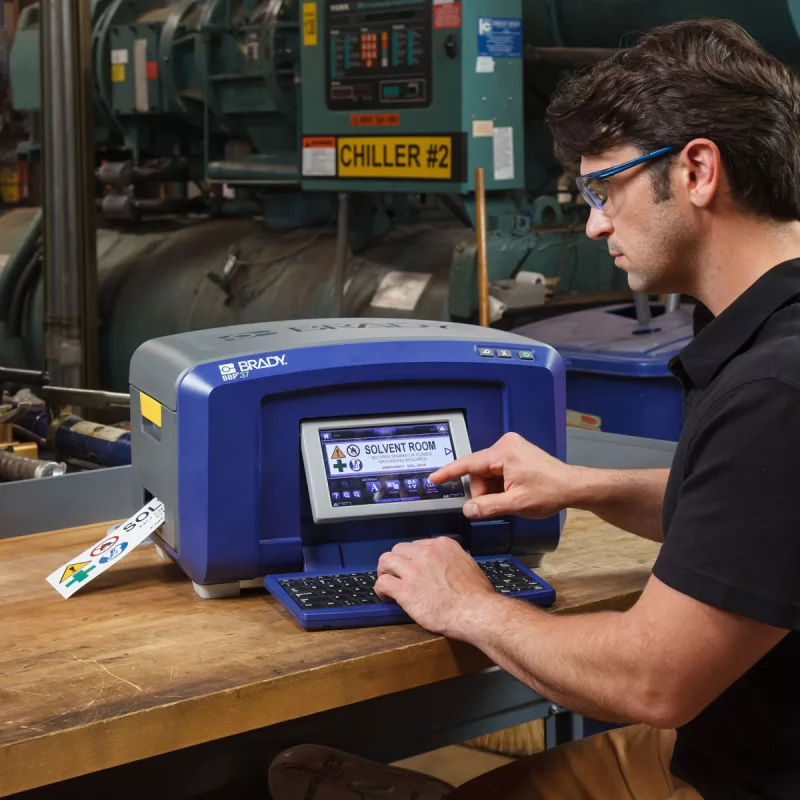
Zebra ZD620 Healthcare Printer:
This industrial label printer is also specifically designed for healthcare environments and offers features such as:
- Disinfectant-ready plastics
- Healthcare-specific power supply
- Healthcare-compliant firmware.
3. Manufacturing and Industrial Sector
Industry-specific needs for labels
In the Manufacturing and Industrial sector, labels serve as means to provide important information about:
- Products
- Components
- Materials.
They are typically used to mark and track:
- Inventory
- Equipment
- Machinery
You should take note of the following:
- When labeling, labels should be clear, legible, and durable to withstand the often harsh and demanding industrial environments.
- Consider the use of standardized labeling systems, such as barcodes or QR codes to enable efficient tracking, inventory management, and automation.
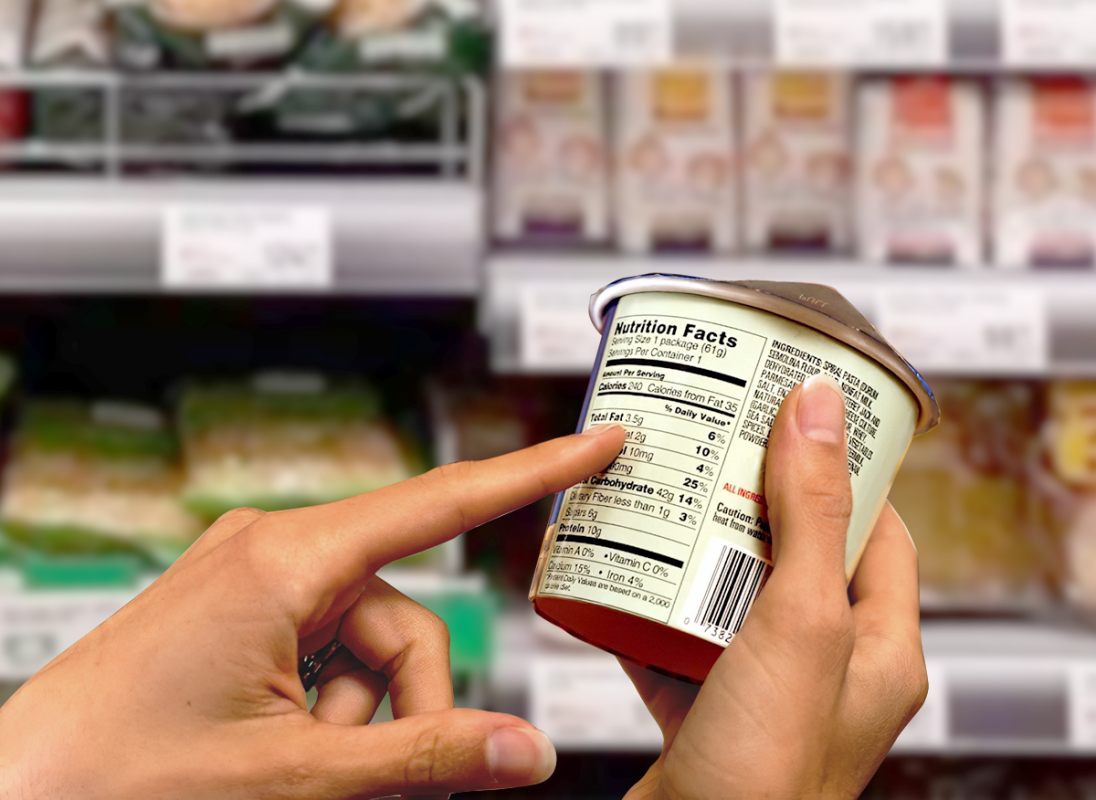
Key features and capabilities for industrial label printer
In manufacturing and industrial environments, the industrial label printer needs to withstand harsh conditions, including dust, moisture, temperature variations, and heavy usage. Also, in manufacturing settings where high-volume production and fast turnaround times are common, a printer that can handle heavy printing is useful.
So, look for printers with:
- Rugged construction and durable materials
- Has fast printing speed
- High volume capabilities.
Printer recommendations
Datamax H-Class:
- Has rugged durability
- Fast printing speeds
- Compatibility with numerous label materials
Honeywell PX940 Industrial Label Printer:
- Durable construction
- Provides high printing volumes
- Precise printing with error detection and correction capabilities
- Includes features like label verification, remote management.
4. Logistics and Distribution Industry
Industry-specific needs for labels
As part of the logistics and distribution industry, labels allow for efficient movement and tracking of goods.
- These labels are used to provide important information about packages, pallets, containers, and shipments.
- They are applied to boxes, cartons, crates, and other packaging materials.
When labeling in the Logistics and Distribution industry, labels should be clear, legible, and easily scannable to facilitate automated scanning and tracking processes. Additionally, they should be resistant to various environmental conditions to ensure they remain intact and readable throughout the transportation process.
Key features and capabilities for industrial label printer
In the logistics and distribution industry, there is often a need for high-volume industrial label printer to keep up with the fast-paced nature of operations. Moreover, clearly legible labels are vital for this industry for accurate tracking and identification.
So, for timely and efficient label production, it would be wise to choose the best label printer for shipping with:
- Fast print speeds
- Large print volumes
- High print resolution and quality.
Printer recommendations
SATO CLNX Series:
It is ideal for printing shipping labels, packing lists, and barcode labels and features:
- Has high-quality printing
- Easy integration with shipping software
- Provides numerous advanced connectivity options (USB, Ethernet, and RS-232, wireless,…)
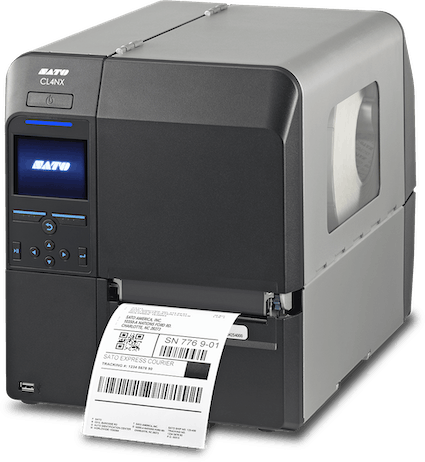
Brady BBP37 Color Label Printer:
- Offers high-resolution color printing
- Supports a variety of label materials (metallized polyester, transfer tape, vinyl label printer,…) Has a user-friendly interface
- Includes features like automatic label setup, easy material changeovers, and advanced label design software.
5. Retail and Consumer Goods
Industry-specific needs for labels
In the Retail and Consumer Goods industry, labels are typically used to label individual products, packaging, and shelves in retail stores. The information included on labels is crucial to consumers’ decision-making.
Some important information includes
- Product names
- Brand logos
- Product descriptions
- Ingredients or materials used
- Nutritional information
- Usage instructions
- Safety warnings
- Pricing
- Barcode or QR code
Labels in this industry should be clear, legible, and visually appealing to attract consumers’ attention and convey necessary information effectively. They should reflect the brand identity and be consistent with the overall packaging design.
So, eye-catching labels can help attract consumers and differentiate products from competitors.
Key features and capabilities for industrial label printer
You should choose an industrial label printer that supports a wide range of label sizes to accommodate different product packaging and labeling requirements in the retail and consumer goods industry. It should also offer flexibility in terms of label shapes and formats, allowing for customization and versatility.
Printer recommendations
Epson TM-C3500:
- Offers fast printing speeds
- High-resolution color printing
- Supports a wide range of label sizes and materials
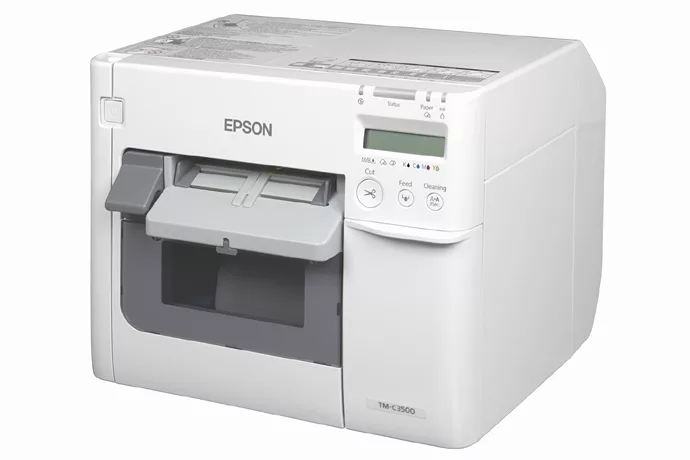
Brady BMP61:
- Portable and small label printer for retail businesses that require on-the-go label printing
- Offers high-quality printing
- Has a rugged design, easy-to-use interface
- Supports a variety of label materials.
6. Chemistry
Industry-specific needs for labels
The use of labels in the Chemistry industry is essential for:
- Ensuring safety
- Proper handling
- Accurate identification of chemicals and their containers.
They can be found on a variety of items, including:
- Chemical containers
- Reagent bottles
- Laboratory equipment
- Shelves or cabinets that indicate the types of chemicals stored.
Some important information on these labels are:
- The chemical name
- Chemical formula
- Hazard symbols
- Safety precautions
- Storage requirements
- Expiration date Supplier information.
Note that:
The Chemistry industry places a high priority on accuracy and detail when labeling. Labels should clearly indicate these hazards through appropriate symbols and provide necessary safety precautions.
Key features and capabilities for industrial label printer
- Meterials used: One of the most important things you need to keep in mind when choosing an industrial label printer for this industry is that they should be capable of printing labels that are resistant to chemicals, solvents, and other harsh substances commonly found in the Chemistry industry.
- High print resolution: Clear and legible labels are crucial in the Chemistry industry for accurate identification and safety. For crisp and easy-to-read text, barcodes, and other information, choose an industrial label printer with high print resolution.
- GHS: You should also note that the Globally Harmonized System (GHS) provides standardized labeling requirements for hazardous chemicals. So, it’s excellent to pick an industrial label printer that supports GHS-compliant label printing, including the ability to print GHS pictograms, hazard statements, precautionary statements, and other required information.
Printer recommendations
Primera LX900:
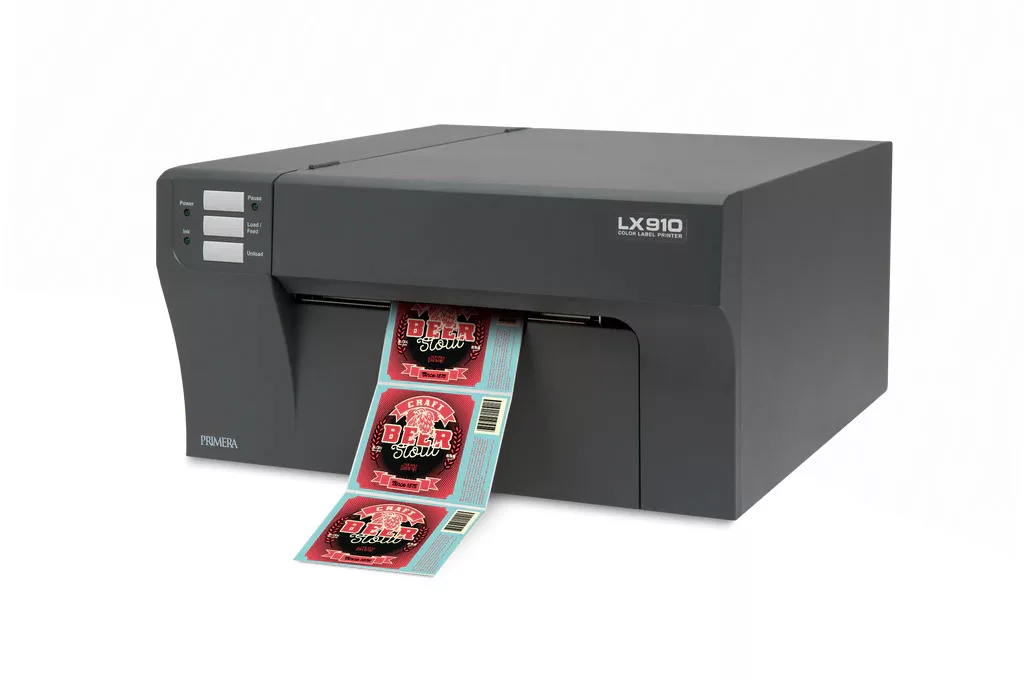
This printer is perfect for chemical-resistant labeling, it
- Supports GHS-compliant symbols and warning signs
- Offering durable printing for hazardous substance labels.
Epson ColorWorks C7500:
This color label printer is ideal for chemical products that require vibrant and high-quality labels. It:
- Offers chemical-resistant printing
- High print resolution
- Supports a wide range of label sizes and materials.
Conclusion
In conclusion, selecting the right industrial label printer is essential for efficient and accurate labeling in various industries. We have provided recommendations for 6 specific industries and each industry has unique requirements. Hopefully, you can choose the best printer for label printing that can streamline operations and ensure compliance with industry regulations.
For more in-depth information on label printers and related topics, we recommend reading our other posts on our website. We will discuss many specific topics and provide further useful guidance for your business.


